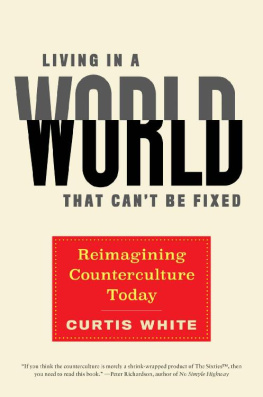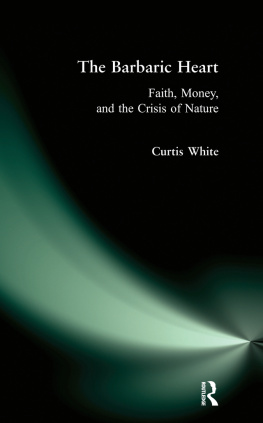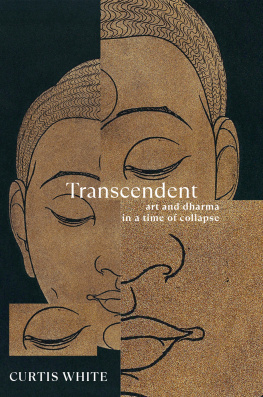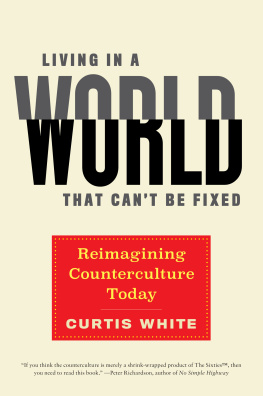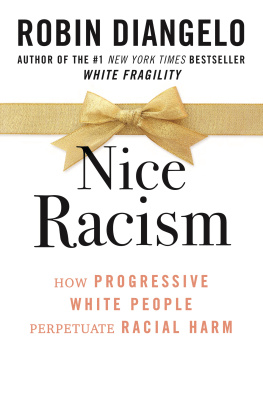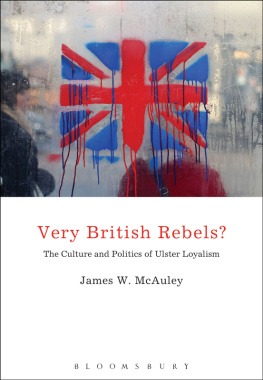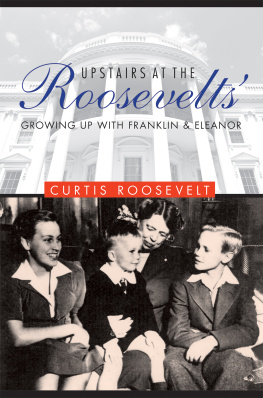The Spirit of Disobedience: Resisting the Charms of Fake Politics, Mindless Consumption, and the Culture of Total Work
by Curtis White
First published 2007 by Paradigm Publishers
Published 2016 by Routledge
2 Park Square, Milton Park, Abingdon, Oxon OX14 4RN
711 Third Avenue, New York, NY 10017, USA
Routledge is an imprint of the Taylor & Francis Group, an informa business
Copyright 2007 by Curtis White.
All rights reserved. No part of this book may be reprinted or reproduced or utilised in any form or by any electronic, mechanical, or other means, now known or hereafter invented, including photocopying and recording, or in any information storage or retrieval system, without permission in writing from the publishers.
Notice:
Product or corporate names may be trademarks or registered trademarks, and are used only for identification and explanation without intent to infringe.
Book design: Michael Bass Associates
Library of Congress Cataloging-in-Publication Data
White, Curtis, 1951
The spirit of disobedience: resisting the charms of fake politics, mindless consumption, and the culture of total work / Curtis White.
p.cm.
ISBN-
1. Social valuesUnited States. 2. Political cultureUnited States. 3. Right and left (Political science) 4. SpiritualitySocial aspects. I. Title.
HN65.W488 2007
303.3720973dc22
2006026272
ISBN 13: 978-0-9815769-0-9 (pbk)
ISBN 13: 978-0-9778253-1-8 (hbk)
1.
I would like to introduce two ideas that are essential to what I am calling the spirit of disobedience. These two ideas are simple enough to state but more complicated to demonstrate. They both involve old delusions of American liberalism. The first delusion is that liberal/left politics, in both theory and action, is somehow independent of a need for the spiritual. To the contrary, I think I can show that it has always, whether it has known it or not, been dependent on assumptions that are finally spiritual, and this goes for notoriously antireligious thinkers like Karl Marx and Immanuel Kant as well. The second point is related but runs in the opposite direction. That thing Reason that liberalism has always assumed to be a secular force, the gift of its Enlightenment heroes of science and philosophy, is also finally spiritual but in the worst possible sense, it is religious. Reason is that thing that liberalism has itself always claimed to despise: a baseless and destructive enthusiasm.
We have seen a renaissance in a faith in Reason in recent years, especially since liberalisms humiliating defeat at the hands of evangelical America in the 2004 national elections. Following that election, there was an immediate roar from the disappointed. In an op-ed piece, historian Garry Wills suggested that the Republican/evangelical triumph was in fact the end of critical intelligence, the unhappy victory of religious superstition, intolerance, cruelty, torture, and so forth. The Bush victory was, in short, the death of the Enlightenment. According to Wills, four hundred years of progress had been dashed by a bunch of fundamentalist evangelicals in rural Ohio, and we were going to have to start all over again. Summon old Voltaire from his cranky grave. Storm the Bastille. Why, Sisyphus had it easy in comparison.
Then, cruelest blow of all, the web lit up with a chart cobbled together by one Christopher Evans from his personal web site where, among other things, he studies the musculature of the shoulder carriage. His infamous post to the web purported to show that the average IQ of red Republican states was far below the average IQ of blue Democratic states. It was as if American liberals were saying, The Republicans may have won, but they should be embarrassed about it. It had been reasonably shown (Evans used statistics!) that evangelical Republicans were stupid.
Bill Maher, appearing on MSNBCs Scarborough Country in support of the Wills column, summed up the self-satisfied perspective of liberal America in saying, I am just embarrassed that [America] has been taken over by people like evangelicals, by people who do not believe in science and rationality.
But the smugness of a purportedly secular liberalism, confidently established in the powers of Reason, does not bear up well under examination. Is it really so free of the religious prejudice and superstition it has always claimed to despise? Has it no need for the spiritual?
2.
K arl Marx famously assumed that his criticism of capitalism was independent of any religious thought and that, in fact, it implied the destruction of religion as such. Good, reasonable son of the Enlightenment that he was, he could describe how capitalism functioned, as a sort of exploitation machine, which is exactly what he did through the concept of surplus value developed endlessly in Capital (1867). In essence, surplus value is a way of accounting for the difference between the value a laborer creates through work and the value he receives back as wages. The difference, or surplus, is what the capitalist keeps to pay for the expense of doing business and as profit, whether in his own pocket or in the pocket of his shareholders in the age of the corporation. As this surplus accumulates it becomes capital and seals the fate of the working class, always now dependent on the interests and ambitions of the owners of what Marx called the means of production. Henceforth, private abundance will assure public destitution. Even more ominously, the worker is now dependent on the capitalists sense of justice. To the worker the capitalist says, This is what will count as fair in this social order. As Jean-Jacques Rousseau put it in The Social Contract (1762), speaking of the absurdity of a right to slavery, I make with you a convention wholly at your expense and wholly to my advantage; I shall keep it as long as I like, and you will keep it as long as I like. For Marx, the social agreement made by capitalism with its wage slaves was no less absurd and one-sided. But for the capitalist, the only meaningful question of justice is the pragmatic question: How far can these slaves be made the sacrificial victims of our well-being before they revolt? How can we convince them to accept their role as economic scapegoats in this system?
More important, Marx could describe how capitalism was experienced by human beings, which he did through the concept of alienation in his early essays, like The Economic and Philosophic Manuscripts of 1844 (written just a year before Henry David Thoreau would begin his famous retreat from his own sense of economic alienation to Walden Pond). Because the logic of capitalism tends toward ever more radical models of efficiency in order to maximize the creation of surplus value, and because it is more efficient to consider the human beings standing before it only as the purely contractual offer of their labor capacity, all other human attributesthe spiritual, certainly, but also the creativebecome somebody elses problem. This is the logic that, to this day, even parents and school boards apply when they decide that music education (or art or the girls tennis team) is a luxury and that the only essentials in the curriculum are those that will lead most directly to employability. As state legislators are wont to say in that poetic way of theirs: the only justification for education is workforce preparation. More brutally put (as if that bureaucratic phrasing werent brutal enough), through education the protectors of children prepare their young charges for future roles as labor commodities.


